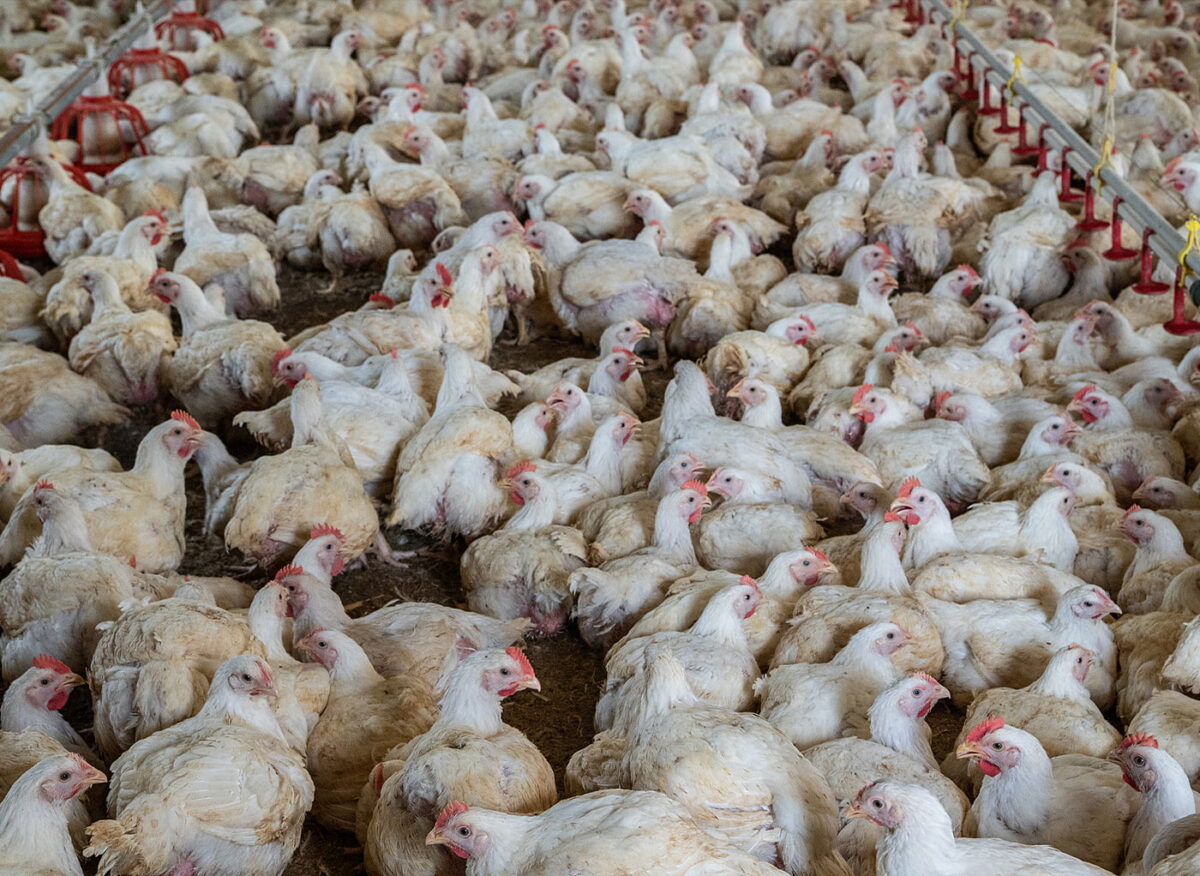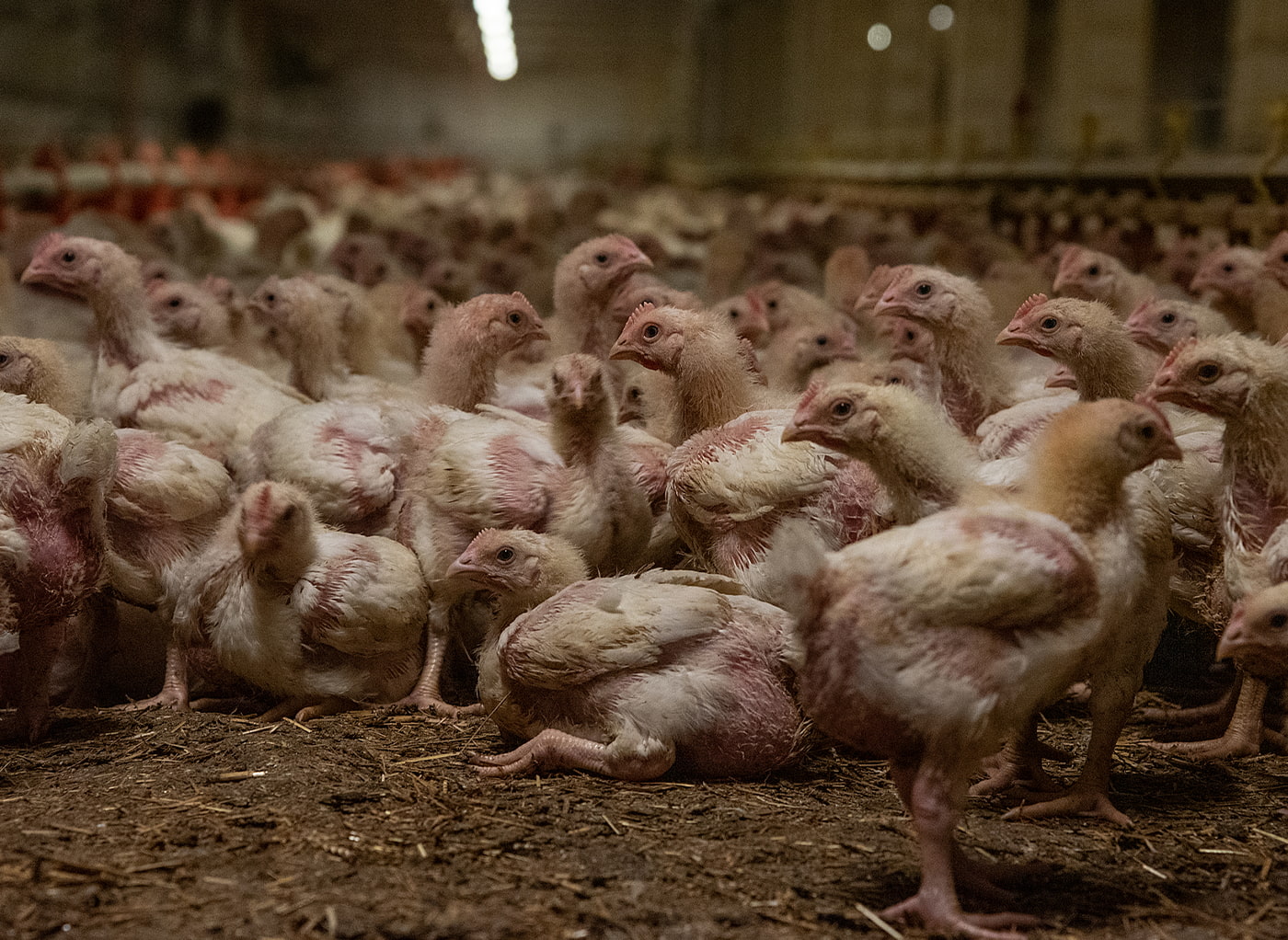Protecting broiler chickens (chickens for meat)
Over a billion broiler chickens (chickens for meat) are raised and slaughtered for meat in the UK each year. They are raised in horrific conditions, kept indoors with tens of thousands of other birds, without access to the outside or to natural light. Over previous decades, the genetics of broiler chickens has been adapted to lower costs and maximise profit and production, and breeding has determined the current shape and size of chickens, their health and lifespan, what they need to eat and how much. This has also allowed for a very automated production methods with minimal human involvement. But all of this comes at a massive cost to welfare.
Although these chickens would usually live around 5-8 years naturally, over the last 30 years the time to raise a chicken to 2kg (slaughter weight) has gone from ten weeks to just six weeks or less. Chickens can grow four times larger than in the 1950s and as a result lameness is common owing to the unnatural fast growth process. The chickens are kept at a stocking density of around 16-19 birds per square meter and can suffer from hock burns caused by the ammonia in the vast amounts of faeces on the floor of their sheds.
In the UK around 70% of animals raised for meat are raised in intensive conditions (factory farms).

We call for better conditions for broiler chickens.
CAWF supports the ‘The Better Chicken Commitment’, an initiative that requires companies to meet higher standards for chickens by 2026. Many large retailers and food service companies have already signed up. Additionally, we would like to see changes to the law regarding handling and transport of chickens at the end of their short production cycle, when being taken to slaughter.
What is CAWF doing to protect broiler chickens?
We have commissioned scientific reports of animals in transit, including: ‘The case to improve the conditions of poultry in transit in the UK.’ This report details the impact of handling, methods of transport, temperature and space on bird welfare whilst in transit. It also recommends adapting catching and loading techniques, transportation methods, introducing a maximum journey time (unbelievably poultry are exempt from animals in transit regulations), reducing permitted temperature range and adapting space allowances.
We have also worked with MPs to help support and table amendments to key pieces of legislation in these areas and are also working to support laying hens calling for a ban on enriched cages (read more here) and a ban on beak trimming (read more here). We continue to work alongside like-minded organisations to support initiatives to enhance the lives of broiler chickens and all farmed animals.


